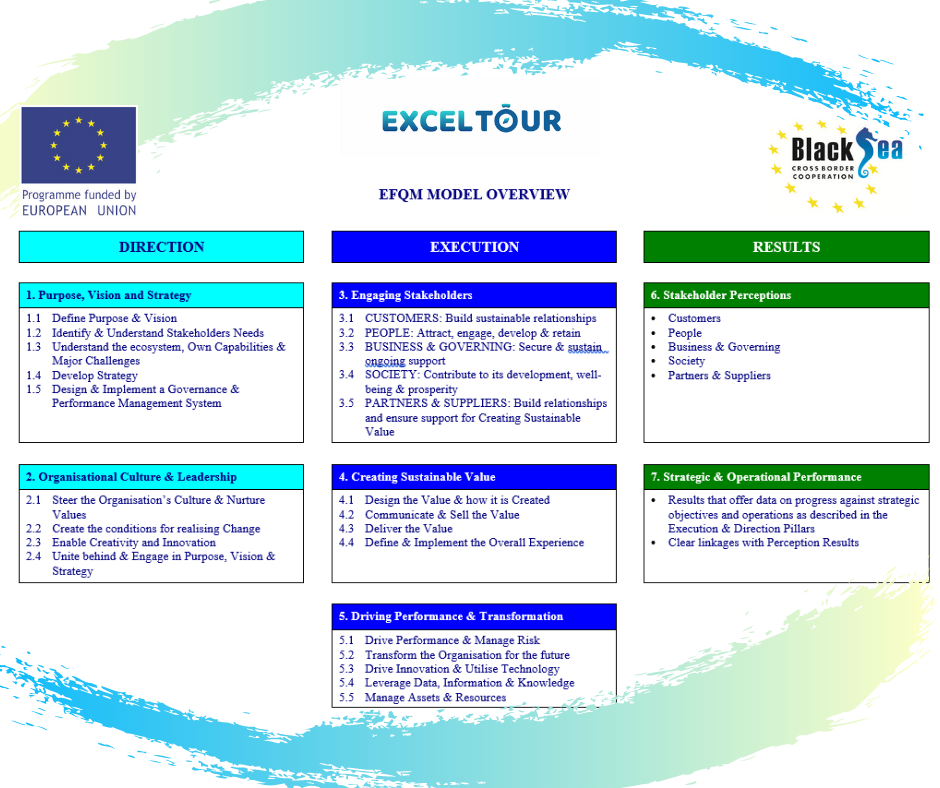Through the project Business Excellence in Tourism – EXCELTOUR (BSB874), six partners from five countries aim to tackle the challenges from tourism industry by introducing & applying the concept of Business Excellence to tourism SMEs, by using the internationally recognized Excellence Model of the European Foundation for Quality Management (EFQM), which mainly aims to ensure sustainability of tourism.
The European Foundation for Quality Management (EFQM) Model helps organizations become more competitive by establishing appropriate management systems.
The model sets a path to excellence, helps organizations measure where they are on the path and understand the gaps, and offers solutions to cover these gaps. In other words, the model allows organizations to determine their current “level or excellence” and where they need to improve their efforts.
What are the Main Principles?
Regardless of the size or type of the organization these principles are as important today as they have ever been and continue to stress the importance of:
- The primacy of the customer
- The need to take a long term, stakeholder centric view
- Understanding the cause and effect linkages between why an organization does something, how it does it and what it achieves as a consequence of its actions.
The EFQM model has a strategic nature, since it focuses on the on operational performance and results, and allows to test the coherence and alignment of an organization’s ambitions for the future against its current ways of working and allows to identify the challenges and pain-points.
How does the Model Work?
Using the model provides the opportunity to see the holistic perspective and appreciate that an organization is a complex but, at the same time, an organized system.
The EFQM Model Structure
The EFQM Model structure is based on the simple but powerful logic of asking three questions:
- “Why” does this organization exist? What Purpose does it fulfil? Why this particular Strategy? (Direction)
- “How” does it intend to deliver on its Purpose and its Strategy? (Execution)
- “What” has it actually achieved to date? “What” does it intend to achieve tomorrow? (Results).
The EFQM Model Process
Direction: For an organization to achieve and sustain outstanding results that meet or exceed the expectations of its stakeholders it:
- Defines an inspiring Purpose
- Creates a Vision that is aspirational
- Develops a Strategy that is centered on Creating Sustainable Value
- Builds a winning culture.
Execution: After setting the direction, an organization needs to execute its Strategy effectively and efficiently, ensuring that it:
- Knows who the stakeholders are in its ecosystem and engages fully with those that are Key to its success
- Creates Sustainable Value
- Drives the levels of performance necessary for success today and, at the same time, drives the necessary improvement and transformation if it is to be successful in the future.
Results: These are what the organization has achieved in relation to what has been described in the Direction & Execution, including the forecast for the future. In practice an outstanding organization provides results data for:
- Stakeholder Perceptions
- Creating Sustainable Value
- Driving Performance & Transformation
For more information, you may visit the project website: https://exceltour.org/.


